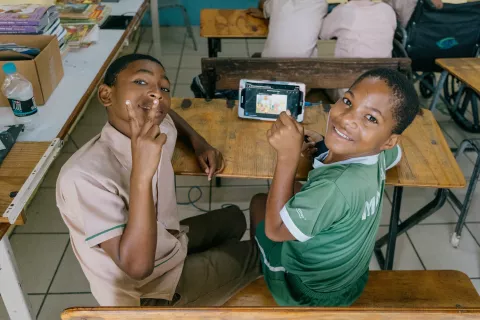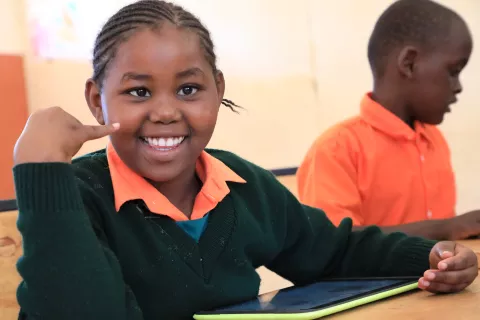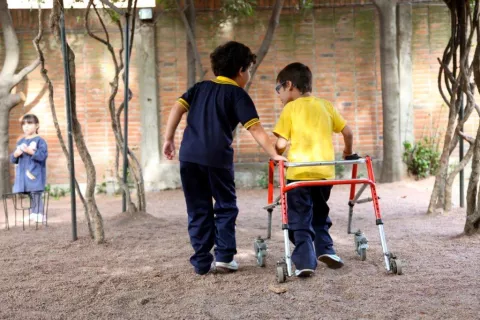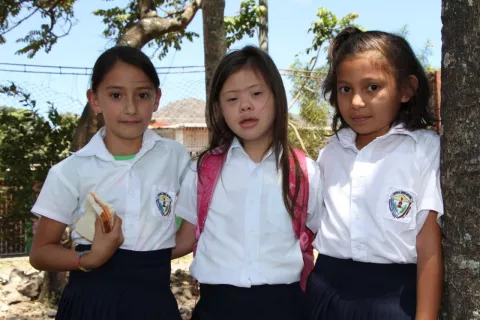Nicaragua Pilot
Video Books in Nicaraguan Sign Language
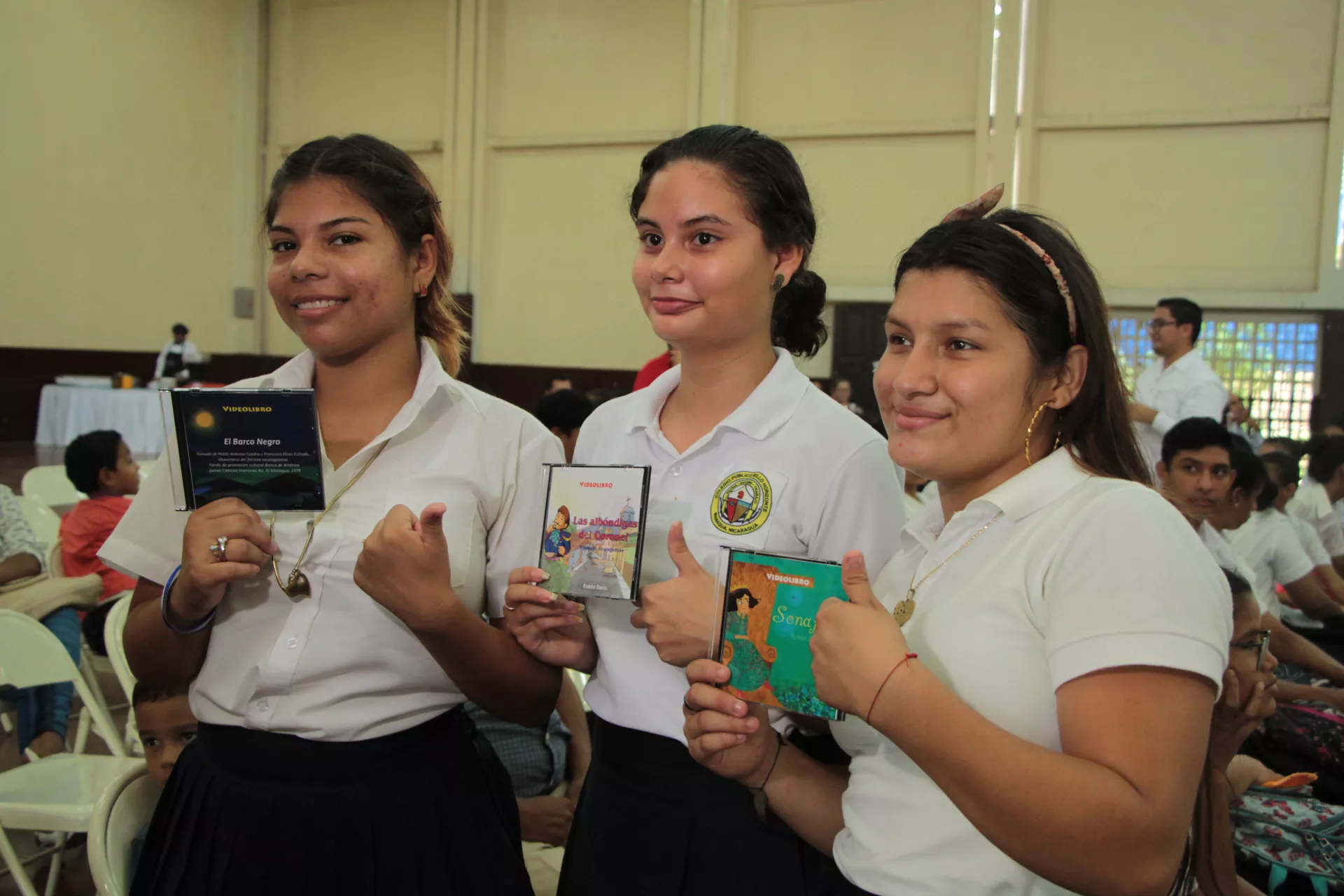
- Available in:
- English
- Español
Managua, Nicaragua. Dressed in a traditional Nicaraguan folk dress in the national blue and white colours, 11-year-old Ebony Castellón stood in front of the audience with three other children to perform in Nicaraguan Sign Language (LSN, acronym in Spanish) the song Nicaragua Mía (My Nicaragua) by composer Tino López Guerra. It was a special day because for the first time ever children and young people with disabilities came together to discover and enjoy ten Nicaraguan works of literature in the form of video books told in LSN and Spanish, with the aim of promoting inclusive and quality education.
There are over 8 million children under the age of 14 with disabilities in Latin America and the Caribbean and it is estimated that 7 out of every 10 children with disabilities do not attend school for different reasons. In Nicaragua, only 1 in every 10 children with disabilities attends school, according to the Los Pipitos Association of Parents with Children with Disabilities.
Ebony is a girl with a hearing disability who wants to be a teacher when she grows up. Her mother tongue is sign language. She explained that she already knew about the Nicaraguan poet Rubén Darío, but had not previously been able to enjoy his literary works. However, she had just discovered the story “Las Albóndigas del Coronel” (The Colonel’s Meatballs) and will now be able to access more literature through the ten video books that will be published on UNICEF Nicaragua’s website and YouTube.
“Learning is at the heart of the new UNICEF Education Agenda and from that perspective we no longer focus on guaranteeing access to education for all children, but rather on ensuring that all children learn.”
A multi-disciplinary effort
This work has required coordination and joint work involving people with different skills, including sign language readers and instructors, experts in video book production, illustrators, project coordinators and presenters, among others. With technical and financial assistance from UNICEF, advice was provided by the Canales Civil Association from Argentina, the Nicaraguan Deaf People’s Association (ANSNIC) and the Association of Interpreters of Nicaraguan Sign Language (ANISNIC). The Ministry of Education has participated through its Inclusive Special Education Directorate, its Social Communication Directorate and through Canal 6, the state’s educational television channel.
Also speaking during the video books launching ceremony at a state school in Managua was Cynthia Brizuela Speratti, who is a specialist on issues related to educational inclusion and guaranteeing the rights of children with disabilities at UNICEF’s Latin American and the Caribbean Regional Office. “Learning is the key issue for guaranteeing inclusion and equity in education,” she stressed. “Learning is at the heart of the new UNICEF Education Agenda and from that perspective we no longer focus on guaranteeing access to education for all children, but rather on ensuring that all children learn.”
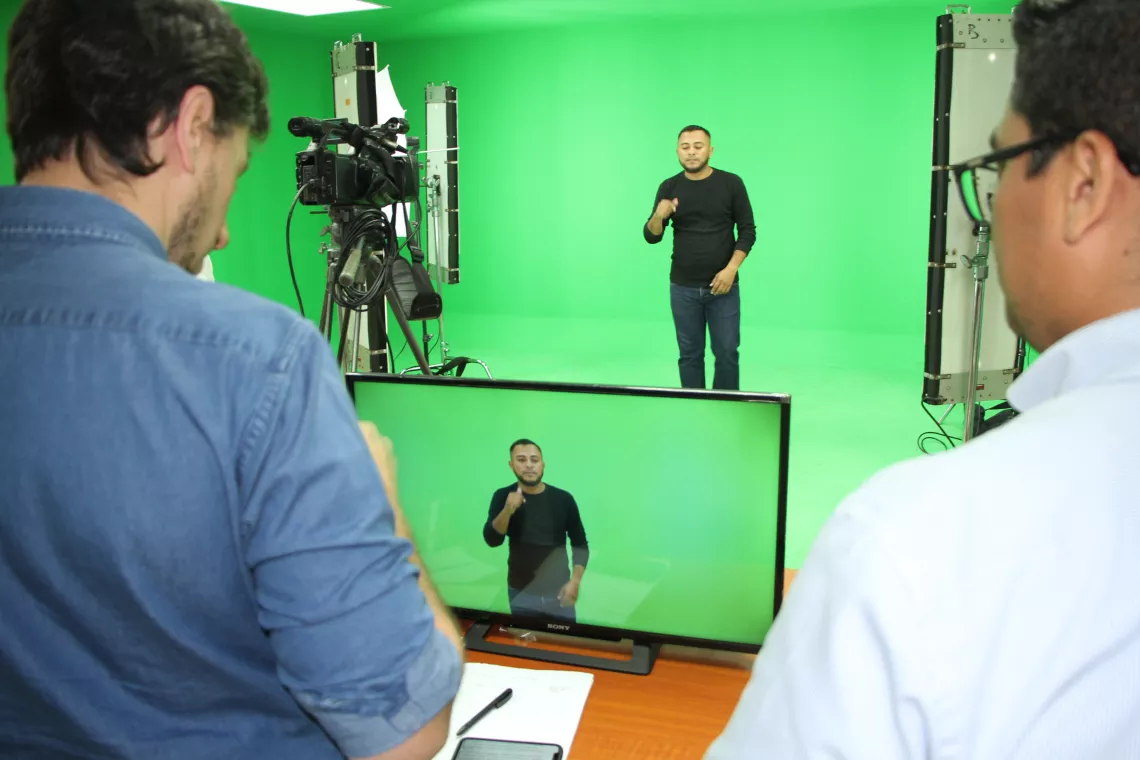
A six-country initiative
“Globally speaking, UNICEF has been promoting the Accessible Digital Textbooks for All initiative since 2014,” explained Julie de Barbeyrac, Programme Coordinator of the Disability Section at UNICEF New York. “This initiative is also part of the global Inclusive Education programme, which is aligned with the Convention on the Rights of Persons with Disabilities. The initiative is currently being implemented in Uruguay, Uganda, Ruanda, Paraguay, Kenya and Nicaragua.”
“Thirty years after the Convention on the Rights of the Child went into effect, we have to emphasize the importance of universal access to an inclusive, equitable and quality education for all. And the support from this initiative is part of that effort,” stated UNICEF-Nicaragua Representative Ivan Yerovi H., speaking at the video books launching ceremony, which was also attended by Ministry of Education authorities and students.
Most of the video books are literary works by the Nicaraguan poet Rubén Darío, who wrote at the end of the 19th century and is known as the father of modernism in Spanish literature. “It’s the first time I’ve seen a video book and I love it!” said Evony Castellón, who is studying sixth grade at primary school. “I’d like to have this kind of book for other subjects as well.” She was just one of the 60 adolescents with different disabilities that participated in the launching event.
Achievements
The process of producing the video books has enriched Nicaraguan sign language, which has opened to a literary world rich in verse, prose, language and other forms of artistic expression. And this in turn opens up a new world to the deaf community, which can now read Rubén Darío in its own language.
In addition to providing the first 10 video books, the project has generated synergy among experts from different areas and developed local capacities for the future production of video books for different academic subjects.
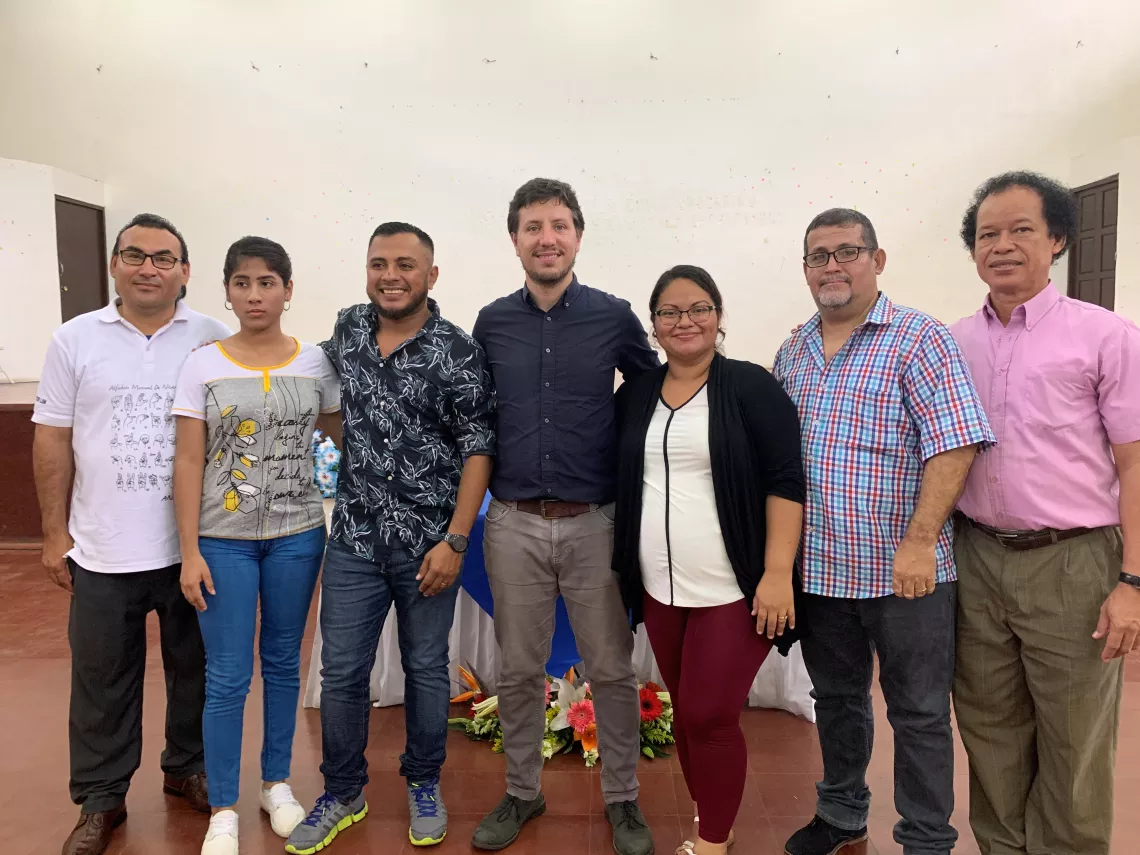
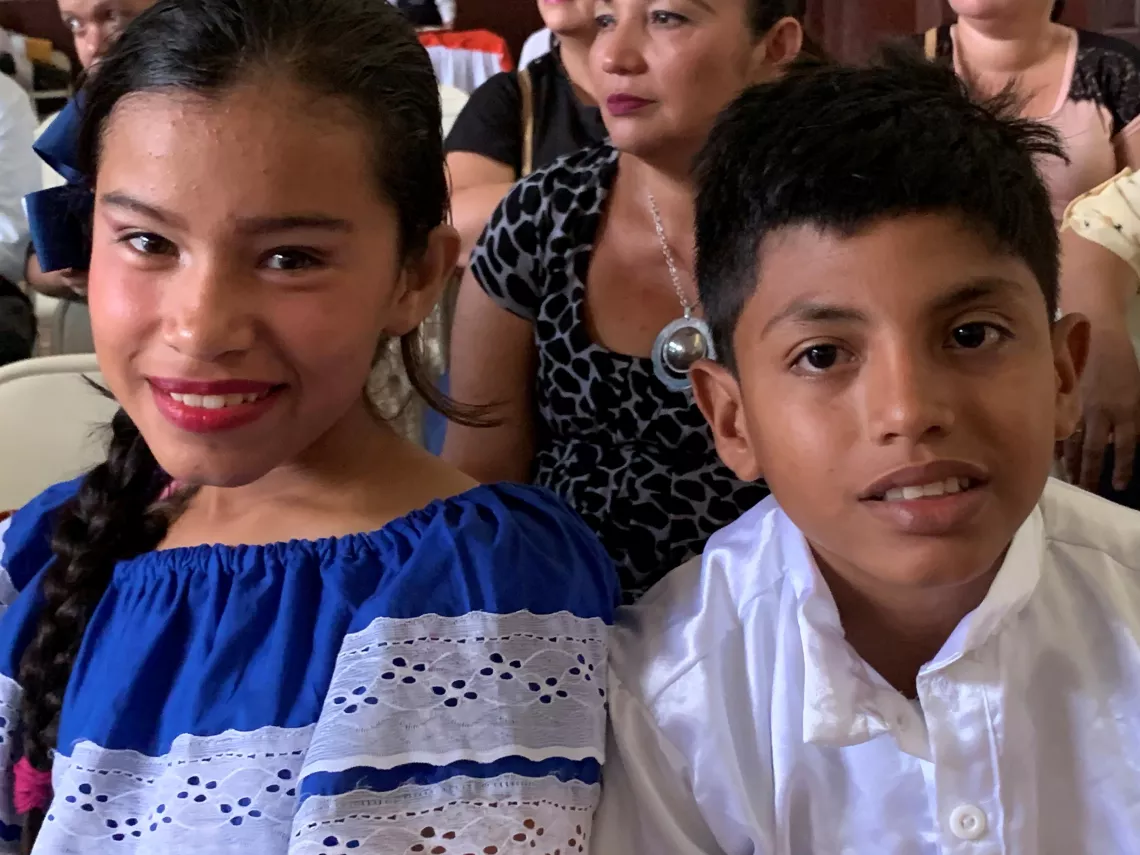
View Videobooks

